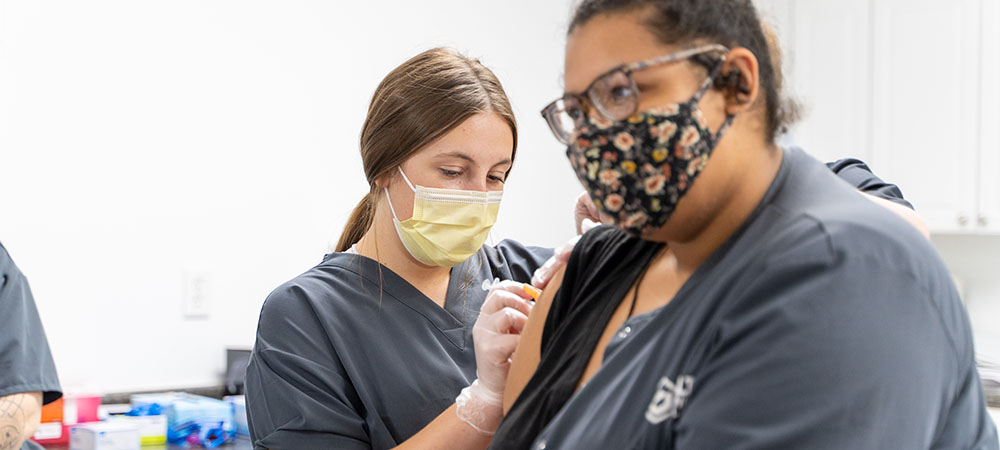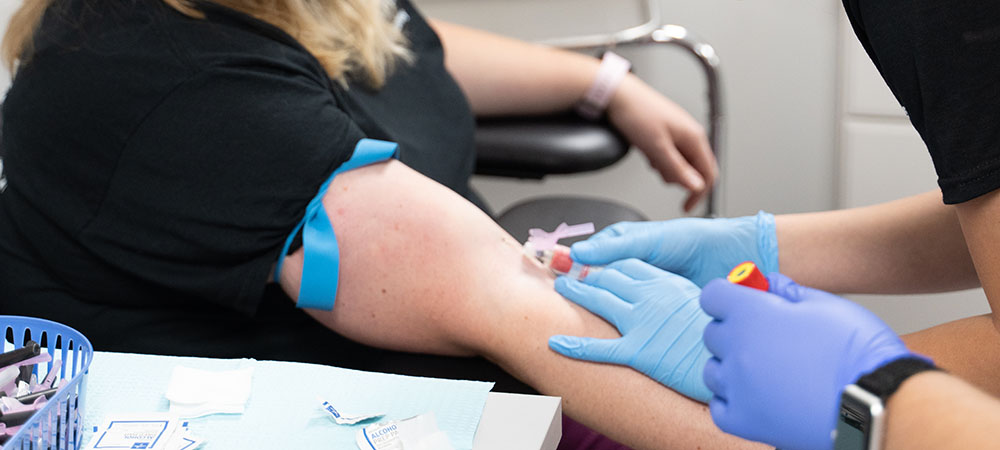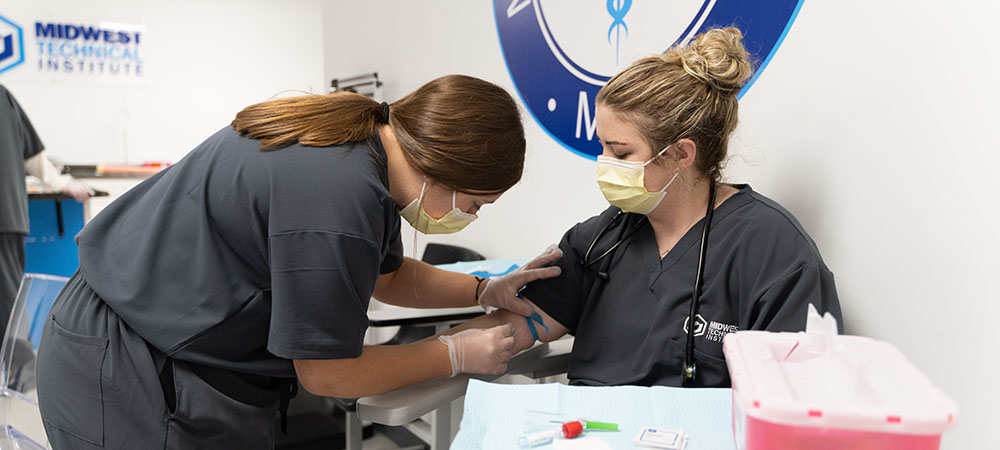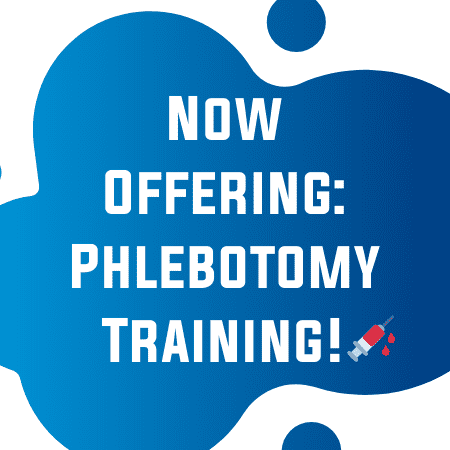Have you recently been considering a career in phlebotomy?
Maybe you started researching how to become a phlebotomist and you’re familiar with some of the basic education requirements for this career within the allied health field. For those who haven’t, the Bureau of Labor Statistics notes that phlebotomists generally start their professional careers with a postsecondary nondegree award they’ve earned from a phlebotomy program. Further, the majority of employers are seeking to hire phlebotomists who have earned professional certification, the kind you’ll receive after completing MTI’s Phlebotomy Course.
You may be wondering whether your personality and career interests are compatible with becoming a phlebotomist-we can help. In addition to teaching you the knowledge you need to earn your phlebotomy certification, MTI’s hands-on phlebotomy classes help you gain the confidence to perform the required skills before you enter the field.
Phlebotomy Training to Prepare You For Real Working Environments
Quality education doesn’t come from textbooks alone-at MTI, phlebotomy training includes hands-on instruction from instructors with real-world experience in environments that simulate actual working conditions. You will receive your training within laboratory environments designed to simulate a medical lab.
Efficiency is an important skill for phlebotomists. MTI’s Phlebotomy Course is designed to help you prepare for the NCCT (National Center for Competency Testing) certification exam, one of the possible paths toward becoming a certified phlebotomist. By completing laboratory tasks routinely performed in medical facilities, you can develop a sense of efficiency as you quickly develop the professional skillset today’s employers value most when hiring.
So, what other skills are useful for a phlebotomy career? There are three key areas:
- Ability to Multitask
Typical job responsibilities for phlebotomists include drawing blood from patients, overseeing patient care and sensitive medical information, and managing medical equipment. The ability to multitask helps you complete your duties more efficiently. Phlebotomy classes at MTI can help you become more proficient in multitasking by challenging you to utilize hematology, basic anatomy, and medical terminology throughout your coursework.
- Ability to Adapt to Changing Environments
As a certified phlebotomist, your work environment can change significantly from one day to the next-it helps to be adaptable, and this is another area where phlebotomy training at MTI can help provide critical experience.
Within 125 combined clock hours that make up MTI’s Phlebotomy Course, you’ll learn to cover a lot of ground quickly. Small class sizes help ensure you receive individualized attention to help you gain experience in areas like infection control, anatomy & physiology, venipuncture procedures, and proper collection of blood cultures.
At MTI, your phlebotomy training is adaptable, too. MTI offers flexible class schedules with both daytime and evening phlebotomy classes available.*
*Evening classes are not available at all campus locations. Please check with your local campus for class schedules.
- Ability to Work with Others
As a certified phlebotomist, you’ll work directly with people from all walks of life. If you already possess great interpersonal skills, this is one aspect of the field you may particularly appreciate.
Virtually everyone will require blood work throughout their lives. Children may need labs drawn to diagnose sensitive medical conditions-similarly, older individuals may need routine blood work to prevent more serious conditions such as heart disease. In addition to educating patients on collection and transfusion processes, a skilled phlebotomist helps their patients relax and relieve their anxiety.
Effective communication skills can also help you work more proficiently with your co-workers. In a dynamic medical environment where dozens of patients may be seen throughout the day, communication skills are essential.
With our smaller class sizes and more individualized instruction, MTI’s Phlebotomy Course can help prepare you for life as a Certified Phlebotomy Technician (CPT).
Find an MTI Phlebotomy Course Near Me
Ready to start your phlebotomist training? Find an MTI campus near you and enroll today,
MTI’s hands-on approach to education provides an opportunity for you to develop the skills mentioned throughout this article and prepare you for the NCCT certification exam. Learn directly from instructors with real-world phlebotomy experience and start your career in allied health. Phlebotomy classes are now enrolling!
SOURCES
U.S. Bureau of Labor Statistics



